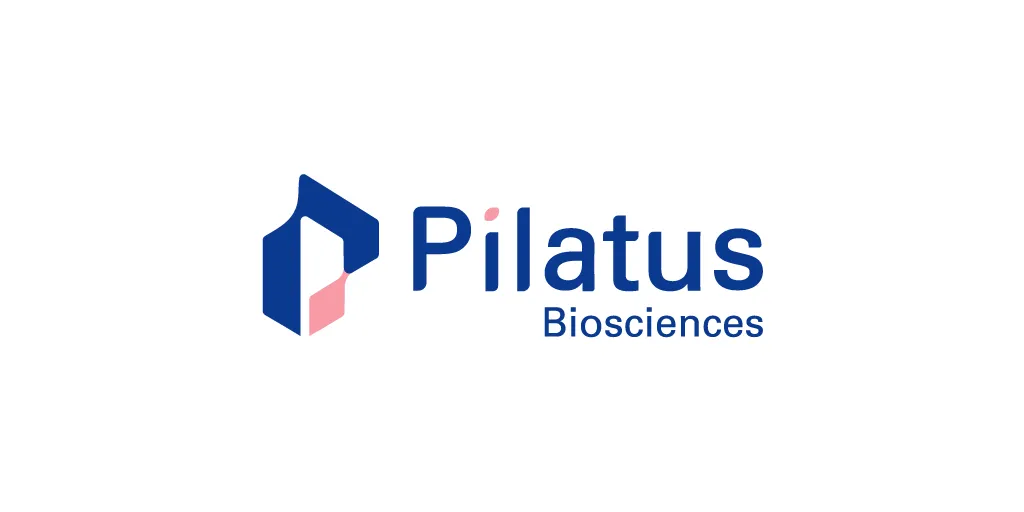
Pilatus Biosciences Launches Clinical Trial Collaboration with Roche to Advance First-in-Human Evaluation of PLT012 in Liver Cancer
Pilatus Biosciences, Inc., a biotechnology company focused on developing innovative metabolic checkpoint immunotherapies for difficult-to-treat liver and gastrointestinal cancers, announced today a new clinical trial collaboration with global healthcare leader Roche. The partnership is centered on investigating the therapeutic potential of PLT012, Pilatus’ lead candidate, in combination with Roche’s established immunotherapy Tecentriq® (atezolizumab) in patients with hepatocellular carcinoma (HCC).
Under the terms of the agreement, Roche will supply atezolizumab, its anti–PD-L1 monoclonal antibody, for use in Pilatus’ upcoming first-in-human Phase 1 study. The trial will evaluate the safety, tolerability, and preliminary efficacy of PLT012 when administered alongside atezolizumab in patients with HCC, the most common form of primary liver cancer and one of the deadliest cancers globally.
A Novel Approach to a Persistent Clinical Challenge
Hepatocellular carcinoma remains a formidable clinical challenge. Despite advances in systemic therapy—most notably the approval of immune checkpoint inhibitors—many patients fail to achieve durable responses. The liver’s unique immunological environment, combined with the dense fibrotic stroma and metabolic alterations within the tumor microenvironment (TME), often suppresses immune activation and limits the effectiveness of current therapies.
PLT012 is designed specifically to address these barriers. It is a Pilatus humanized monoclonal antibody engineered to inhibit CD36-mediated lipid uptake, a mechanism that fuels tumor-associated immunosuppression. By blocking CD36, PLT012 disrupts lipid metabolism pathways that promote the survival of regulatory T cells (Tregs) and pro-tumor macrophages—immune cell populations that blunt anti-tumor immunity.
At the same time, PLT012’s action restores the activity of natural killer (NK) cells and cytotoxic CD8+ T cells, which are otherwise vulnerable to lipid-induced dysfunction. In preclinical studies, this dual effect—removing suppressive immune cells while reinvigorating effector cells—has led to potent anti-tumor responses, even in immune “cold” tumor models that typically resist checkpoint blockade.
Combining Metabolic Reprogramming with Checkpoint Inhibition
The Pilatus rationale for combining PLT012 with atezolizumab lies in their complementary mechanisms. Atezolizumab, as an anti–PD-L1 therapy, works by releasing inhibitory “brakes” on immune cells, allowing them to recognize and attack tumor cells. However, in many cases—particularly in HCC—these reinvigorated immune cells still face a hostile TME that is metabolically and structurally unfavorable to immune activity.
By reprogramming this environment, PLT012 may enable a more robust and sustained immune response to atezolizumab. This synergy could translate into improved response rates and durability for patients who currently have limited treatment options.
Leadership Perspectives on the Collaboration
Dr. Raven Lin, Chief Executive Officer of Pilatus Biosciences, emphasized the importance of this strategic partnership:
“We are pleased to collaborate with Roche as we explore the potential synergy between PLT012 and atezolizumab in patients with HCC. Current treatments, including checkpoint inhibitors as monotherapy, often fail to generate durable responses in liver cancer. PLT012’s ability to reshape the tumor microenvironment may enhance immune activation and unlock deeper, more sustained responses when administered in combination with anti–PD-L1 therapies such as atezolizumab.”

The Pilatus collaboration also drew praise from Dr. Ann-Lii Cheng, NTU Chair Professor and President Emeritus of the NTU Cancer Center at National Taiwan University, who serves as a scientific collaborator for Pilatus Biosciences. Dr. Cheng, a leading authority in liver cancer research and global principal investigator of the landmark IMbrave150 trial (which established atezolizumab plus bevacizumab as a standard of care in first-line HCC), noted:
“This collaboration represents an opportunity to investigate how modulation of the tumor microenvironment can enhance immune checkpoint blockade in liver cancer. Combining PLT012 with atezolizumab has the potential to overcome key mechanisms of resistance in HCC and potentially drive more durable patient responses and improved outcomes for this aggressive disease.”
Background on the Standard of Care
Atezolizumab is already part of an FDA-approved first-line regimen for unresectable or metastatic HCC, used in combination with bevacizumab (Avastin®). This combination demonstrated a significant survival benefit over sorafenib in the IMbrave150 study, published in the New England Journal of Medicine in 2020. However, despite these advances, many patients still progress, highlighting the need for strategies that further enhance therapeutic impact.
In this collaboration, Genentech, a member of the Roche Group, will provide atezolizumab for the Pilatus-sponsored Phase 1 trial. This first-in-human study marks a key milestone for PLT012 and will lay the groundwork for potential later-phase development in HCC and other solid tumors characterized by an immunosuppressive, lipid-rich TME.
Scientific Foundation of PLT012
PLT012’s development is rooted in an emerging understanding of how tumor metabolism shapes immune evasion. Tumor cells and certain immune cell subsets within the PilatusTME rely heavily on lipid uptake and metabolism. CD36, a fatty acid translocase, facilitates this process, allowing suppressive immune populations to thrive while impairing the function of anti-tumor effector cells.
By selectively inhibiting CD36, PLT012 disrupts this metabolic advantage. Preclinical evidence suggests that such blockade not only diminishes the number of immunosuppressive cells but also restores the metabolic fitness of NK and CD8+ T cells. This unique mechanism positions PLT012 as both an immune activator and a sensitizer to other immunotherapies, including PD-1/PD-L1 inhibitors.
Animal model studies of liver cancer and liver metastases have demonstrated that PLT012 is well-tolerated across multiple species, with no significant off-target toxicities observed. These findings support the candidate’s progression into clinical testing.
Trial Design and Expectations
While specific trial details have yet to be disclosed, the upcoming Phase 1 study will likely follow a dose-escalation and dose-expansion format, typical for early-phase oncology trials. The primary goals will be to determine the safety profile, maximum tolerated dose, and recommended Phase 2 dose of PLT012 when combined with atezolizumab. Secondary objectives will assess pharmacokinetics, pharmacodynamics, and preliminary anti-tumor activity.
If early safety and efficacy signals are promising, Pilatus may explore expansion cohorts in specific patient subsets or progress into randomized trials comparing the combination against existing standards of care.
Global Burden of Hepatocellular Carcinoma
HCC accounts for approximately 75–85% of all primary liver cancers. It is the sixth most commonly diagnosed cancer and the third leading cause of cancer-related death worldwide. Major risk factors include chronic hepatitis B or C infection, alcohol-related liver disease, and non-alcoholic steatohepatitis (NASH). The disease often presents at an advanced stage, where curative treatment options are limited.
Given its poor prognosis and high recurrence rates, there is a critical need for novel therapeutic approaches—particularly those capable of altering the underlying biology of the tumor microenvironment to make it more susceptible to immune attack.
Pilatus Biosciences is a clinical-stage biopharmaceutical company dedicated to transforming the treatment of liver and gastrointestinal cancers through metabolic checkpoint modulation. Its pipeline is built on the principle that targeting the metabolic vulnerabilities of tumors and their microenvironments can unlock more powerful and lasting immune responses.





